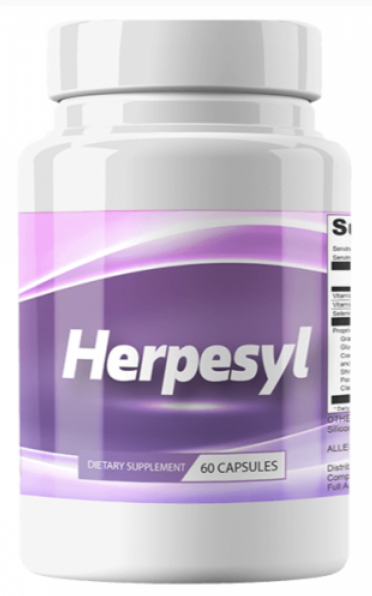So you or your partner have herpes, and you want to have a healthy love and sex life. These days, it’s very possible as long as you know the risks and the right precautions. When is herpes not contagious? And conversely, when is it most contagious? It’s a more complex answer than you might expect, but an encouraging one when you have the right information.
✔️ Medically reviewed by Gerard Sison, PharmD and Meagan Fleming, RN on Dec 1, 2018
When Is Herpes Most Contagious?
Let’s start by talking about when herpes is contagious. It might sound obvious, but the first fact to know is this: Herpes is most contagious during an outbreak. That goes for genital herpes and cold sores from oral herpes.
For genital herpes, you should stop having sex at the first sign of any impending outbreak. According to the World Health Organization, an outbreak may be preceded by mild tingling or shooting pain in the hips, legs, and buttocks (1).
If your doctor has prescribed you medication, this is the best time to take it to stop the outbreak in its tracks. The CDC’s 2015 sexually transmitted disease guidelines state that while Valtrex may be used to treat HSV-2, Acyclovir or Famciclovir can also be used (2).
You should generally wait until after a herpes outbreak heals and resolves to resume having sex. According to the Minnesota Department of Health, sexual contact should be avoided until the sores dry and the scabs fall off, which takes approximately 10-14 days (3).
While condoms can help reduce the risk of spreading herpes, they are not completely safe. Any affected areas not covered by the condom may still provide a way for herpes to spread through skin-to-skin contact (4). Even after a herpes outbreak heals, the risk of transmission may still be present due to viral shedding.
Viral Shedding
When you aren’t having a herpes outbreak, the virus is mostly dormant. However, it is still important to exercise precautions to decrease the risk of passing it to your partner.
The issue is that sometimes, even when you aren’t having an outbreak, you will have periods of “asymptomatic viral shedding”. Although you might not notice any usual symptoms of pain or sores, the virus may still be contagious.
That obviously makes things a little more tricky, so it’s important to manage your herpes in every way possible to reduce outbreaks and viral shedding periods. Here is a very detailed article about herpes viral shedding rates and risks.
When is Herpes Not Contagious? Reduce the Transmission Rate
There have been some very interesting studies done by Valtrex about the herpes transmission rate. One study found that suppressive therapy with Valtrex reduced transmission of herpes by 75%.
Within that same study, Valtrex reduced the total time of viral shedding by 73% when compared to the total viral shedding time without suppressive therapy.
There are three general guidelines to reduce the likelihood of transmission:
- Avoid sex during an outbreak;
- Use daily suppressive therapy, i.e. take Valtrex every day as prescribed by a doctor; and
- Use condoms during sexual activity.
Of course, by abstaining from sex, you will have the lowest chance of transmission. However, research has found that suppressive therapy may reduce the risk of transmission without the use of condoms in some cases. Approximately 37% of participants from the previously mentioned study reported not using condoms while on suppressive therapy.
We recommend you get the advice of your doctor and, if approved by them, follow all three methods if possible. Learn more about taking daily antivirals here.
Herpes and Your Diet
It may also be useful to examine your diet for outbreak triggers. By watching your nutritional intake, you may be able to help your immune system resist outbreaks.
For example, an excess of the amino acid arginine can exacerbate herpes symptoms by helping the virus replicate (6). On the other hand, foods high in lysine (which competes with arginine) may help fight them off.
Additionally, since stress lowers immunity in general, it’s best to implement stress-reducing habits to help reduce the risk of triggering a herpes outbreak (7). Get plenty of antioxidants as well as stress-busting vitamins like Vitamin B, which may further help reduce stress (8). You can read about herpes and your diet in more detail here: Herpes and Diet: Foods to Avoid with Herpes and Foods to Help.
Sources:
- World Health Organization (2017, January 31).Herpes Simplex Virus. (Link)
- CDC. 2015, June 8. Genital HSV Infections.
- Go Ask Alice, How to Use Condoms Properly.
- Minnesota Department of Health. Genital Herpes.
- Griffith RS, Delong DC, Nelson JD. Relation of Arginine-Lysine Antagonism to Herpes simplex Growth in Tissue Culture. Chemotherapy. 1981;27(3):209-213. doi:10.1159/000237979. (Link)
- Cao L, Martin A, Polakos N, Moynihan JA. Stress causes a further decrease in immunity to herpes simplex virus-1 in immunocompromised hosts. Journal of Neuroimmunology. 2004;156(1-2):21-30. doi:10.1016/j.jneuroim.2004.06.017. (Link)
- Kennedy DO, Veasey R, Watson A, et al. Effects of high-dose B vitamin complex with vitamin C and minerals on subjective mood and performance in healthy males. Psychopharmacology (Berl). 2010;211(1):55-68. (Link)
Further Reading
If you’re looking around to learn when is herpes not contagious, then some of our in-depth articles about sex, dating, and herpes facts may be of interest to you:









